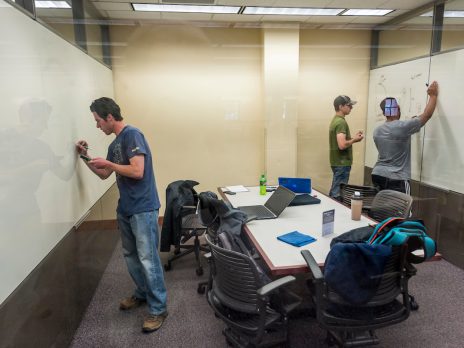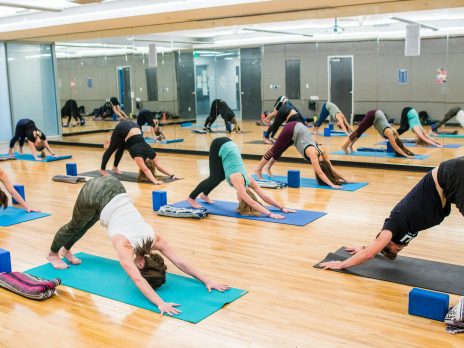With finals just around the corner, we’re all feelin’ the final crunch. Pressure’s on. While it is important to study and focus on acing those exams, it is crucial to set aside some time for stress management and self-care.
I might be a UCAN health coach, but I’m also just like you – easily overwhelmed by finals week. Taking time to acknowledge your body and notice any symptoms of stress can be a great start to incorporating stress management techniques into your daily life. Step 1 – awareness!
 Some common symptoms of stress include:
Some common symptoms of stress include:
- low energy
- muscle tension
- headaches
- insomnia
- fatigue
- irritability
Is this hittin’ home for anyone? Being able to manage your stress is extremely beneficial for mental clarity, sleep improvement, and immune health; all of which we need going into these last few weeks of the semester.
Step 2 – find a way to manage the stress. Below are three helpful actions that might help.
-
Practice self-care.
Do something enjoyable that will take your mind off of your stressors. This includes arts and crafts, taking a bath, reading, listening to music, journaling, or any hobby that is fun for you. Short on time? Even taking two seconds out of your day to take a deep breath can be a form of self-care! Practicing self-care relaxes your body and mind by decreasing your heart rate, breathing, and blood pressure. This helps the body to rest and recharge.
-
 Get moving.
Get moving. Exercising releases hormones called endorphins that lower stress and make you feel good. Hitting the gym, dancing for fun, yoga and meditation, or going for a walk are all great ways to get those endorphins flowing and stress levels dropping.
-
Get enough sleep.
Feeling well rested greatly decreases stress levels and improves cognitive function. Unplugging from electronics about an hour before bed, making your room cool and dark, and getting about 8 hours of sleep can help you feel well-rested and ready to tackle the day.
Most importantly – find what works for you! Experiment with different stress management techniques to discover what you find most helpful. Reading blogs like this one and sitting through lectures about stress management might give you tools, but testing them out is how you REALLY learn what works.
Now’s the time to dial in our stress management skills. I hear it’s not any better on the other side of college, so we gotta figure this out before the real world smacks us in the face. We’ve got this!
